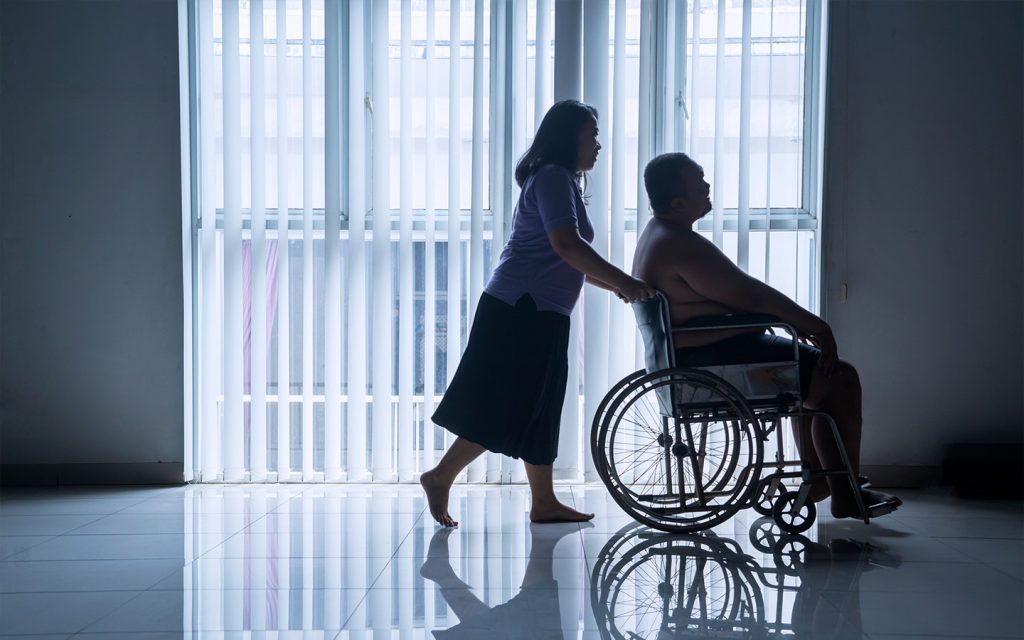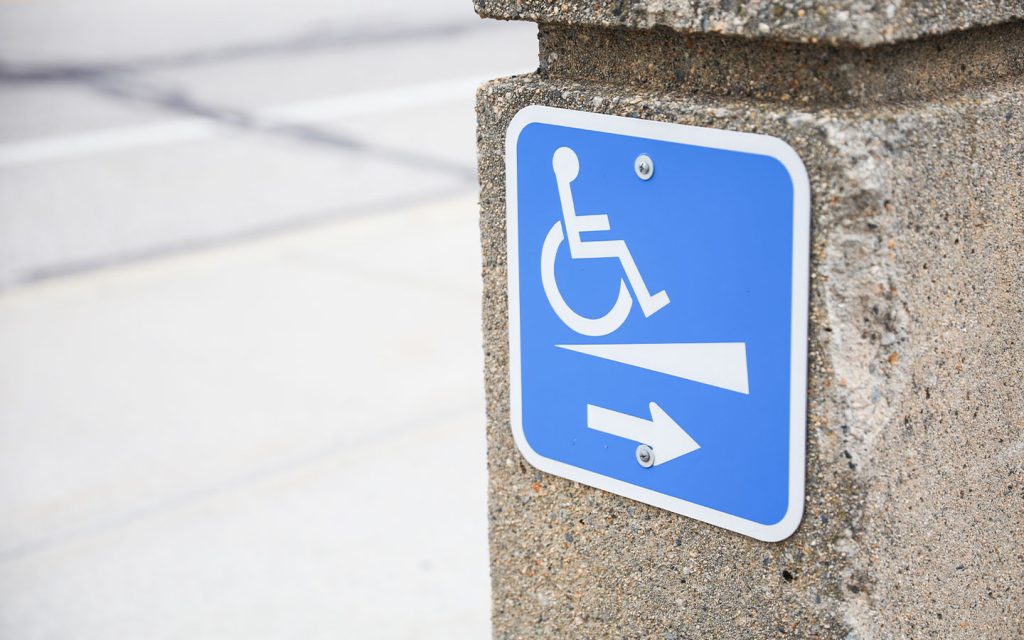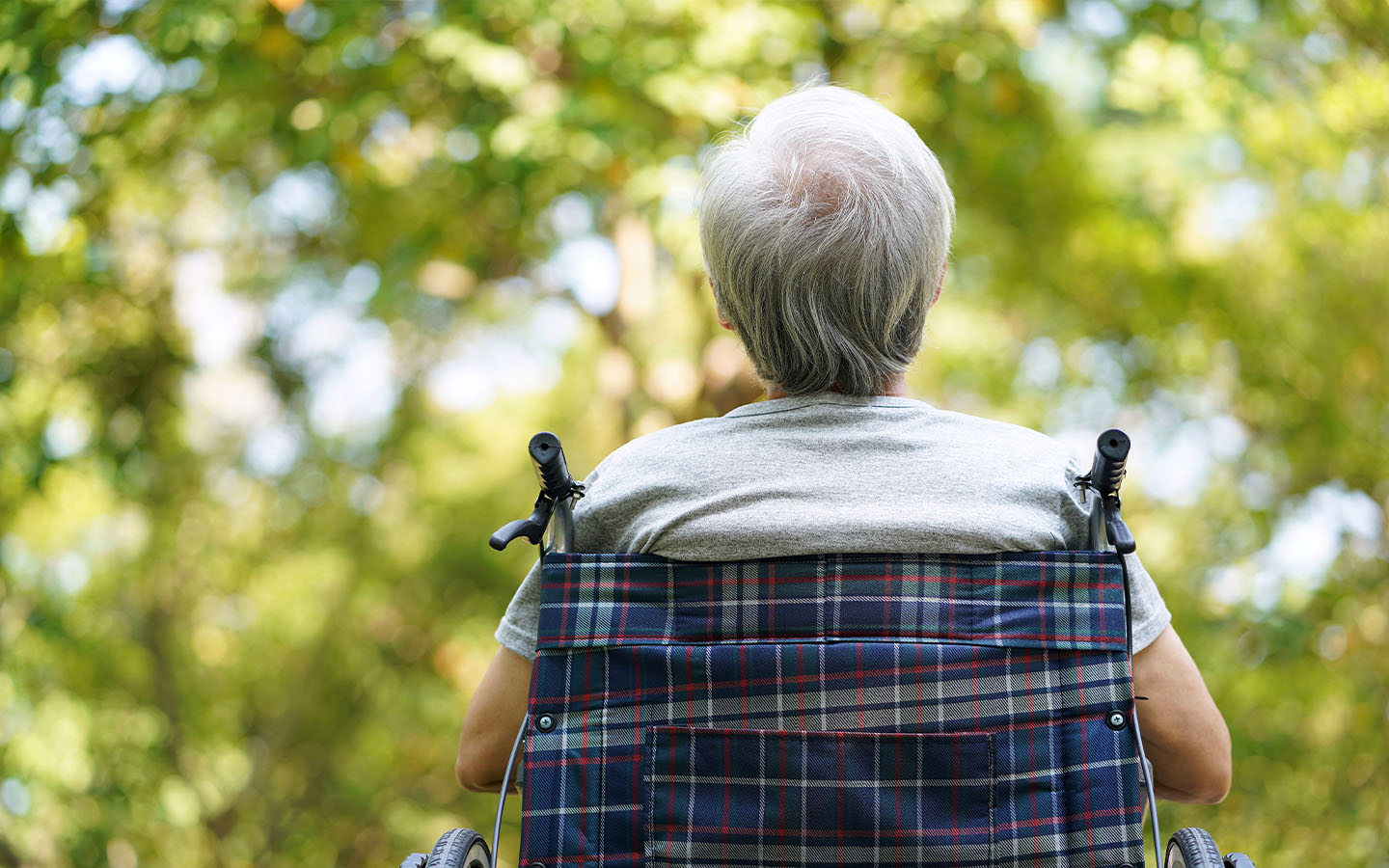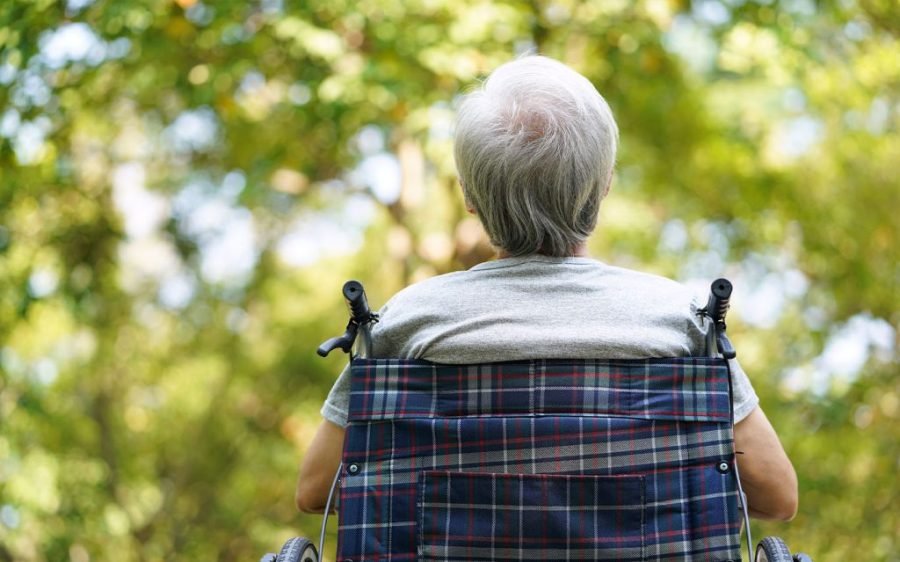Fong Pou In, 68, and Kuok Se Un, 66, are both wheelchair bound, but for different reasons. Kuok was stricken by polio, whereas Fong fell victim to a work accident from decades earlier.
“I was in the construction business and that’s how I ended up like this,” Fong says. His accident resulted in a spinal fracture that left him paralysed from the waist down.
The two retirees, however, share the same struggles when it comes to day-to-day life, especially when it comes to navigating the narrow streets and compact retail premises of densely packed Macao. Many of their fellow members in the Macao Association of Support for the Disabled are in the same situation.
[See more: ‘No arms, no worries.’ Meet Macao singer Romeu Chao Asis]
The organisation of some 1,000 members has been serving people with disabilities for nearly 30 years through support services and outreach events. But on the International Day of Persons with Disabilities, which falls today, it is clear that there is some way to go before Macao can be considered an accessible place for all members of the community.
Life in Macao for wheelchair users

In a city as small and crowded as Macao, wheelchair-bound individuals face a number of unique challenges that can be easily overlooked by other residents. For instance, eating out with friends can be a headache due to the limited availability of space in many local restaurants, which are unable to accommodate wheelchairs.
“If you go to one of those coffee shops [with fellow wheelchair users], the owner will not be pleased to see you because you are blocking the path with so many wheelchairs,” says 63-year old association member Lei Iok Wan, who also suffers from polio.
“We won’t force ourselves into a restaurant if we see it’s small and has only five or six tables,” agrees 55-year old Ho Kuok Meng, a polio sufferer who serves as the secretary general of the association. “We don’t want to create conflict in the community.”
[See more: Macao’s shoddy accessibility projects for the visually impaired have come under fire]
To get around this issue, Fong says he prefers to dine and shop in mainland China where there is much more space for him to manoeuvre. Retailers and restaurateurs are suffering because many people, disabled or not, also prefer to spend their leisure time on the mainland, and Fong knows that local officials are exhorting people to stay and spend their patacas at local businesses. But, he points out, “If you want to remain in Macao and spend, you first have to be able to spend.”
The mainland’s other great lure is price: groceries in Zhuhai can cost half of what they do in Macao and for disabled retirees such as Fong, Kuok and Lei, every cent counts. Government payments have become an essential source of income for them and encompass benefits such as the disability and old age pensions, which each total 3,740 patacas per month. Other payments include an annual disbursement of 10,000 patacas as part of the government’s wealth distribution scheme, and the yearly disability subsidy of 9,000 patacas.
When asked whether or not these meagre government payments are enough to get by on, Ho is stoic. “It depends on what cost of living index you’re using, the types of clothes you wear, the meals that you eat and your living conditions,” he says.
Work isn’t always easy to find. Many older people with disabilities were part of the workforce during the heyday of Macao’s manufacturing industry in the 1970s and 1980s. Ho explains that disabled individuals of that generation would find work in factories, where they would perform tasks such as assembling and finishing products.
[See more: People with disabilities are being left behind, says a social services association]
“At that time, this type of work was relatively easy for people with a physical disability,” Ho says. But Macao’s factories were eventually supplanted by cheaper alternatives on the Chinese mainland, leaving former factory workers such as Lei and Kuok without a job.
Ho points out that opportunities do exist in the local workforce today for people with disabilities to take on positions such as cashiers, office assistants, call centre operators and CCTV operators. “For those who have a physical disability, there are no fixed rules on the types of jobs you can take…it depends on your career aspirations, education level and depth of knowledge.”
However, many older members of the association struggle to find such work as they tend to be less qualified and have to deal with ageism as well as the narrow range of employment opportunities open to them.
Improving conditions for people with disabilities in Macao

Another challenge is taking public transport. This is in spite of the fact that the public buses in Macao are free for disabled persons and come equipped with a space for wheelchair users, as well as a ramp to provide access. As Lei points out, “there are so many people taking the buses these days. If you take a wheelchair onboard, you’re going to get in the way of people.”
The act of boarding a bus is also not as straightforward as it seems, as not all bus drivers are happy about helping disabled individuals use the ramps. “The younger drivers are much better at doing this,” observes Kuok. “The older ones will put on an attitude even if they are willing to come down and help you.”
[See more: People with disabilities are being let down by the Macao Museum, study finds]
As a result of these concerns, Lei says she prefers to use her electric mobility scooter to get around rather than take the bus. In contrast, Ho is a regular user of the bus and personally has no issues riding them on his unmotorised wheelchair. Fong adds that most of the footpaths in Macao are now accessible to the physically disabled, unlike in decades past.
Societal attitudes towards people with disabilities have also improved significantly over the decades – even if more work needs to be done for Macao’s disabled community.
“I’ve worked here [in this association] for twenty-something years and the government’s care for the disabled has improved significantly,” Ho says. “You can’t say the government hasn’t done anything, but can you say the government still needs to improve? Of course. It’s better for there to be improvements – but we need to be practical and realistic.”






